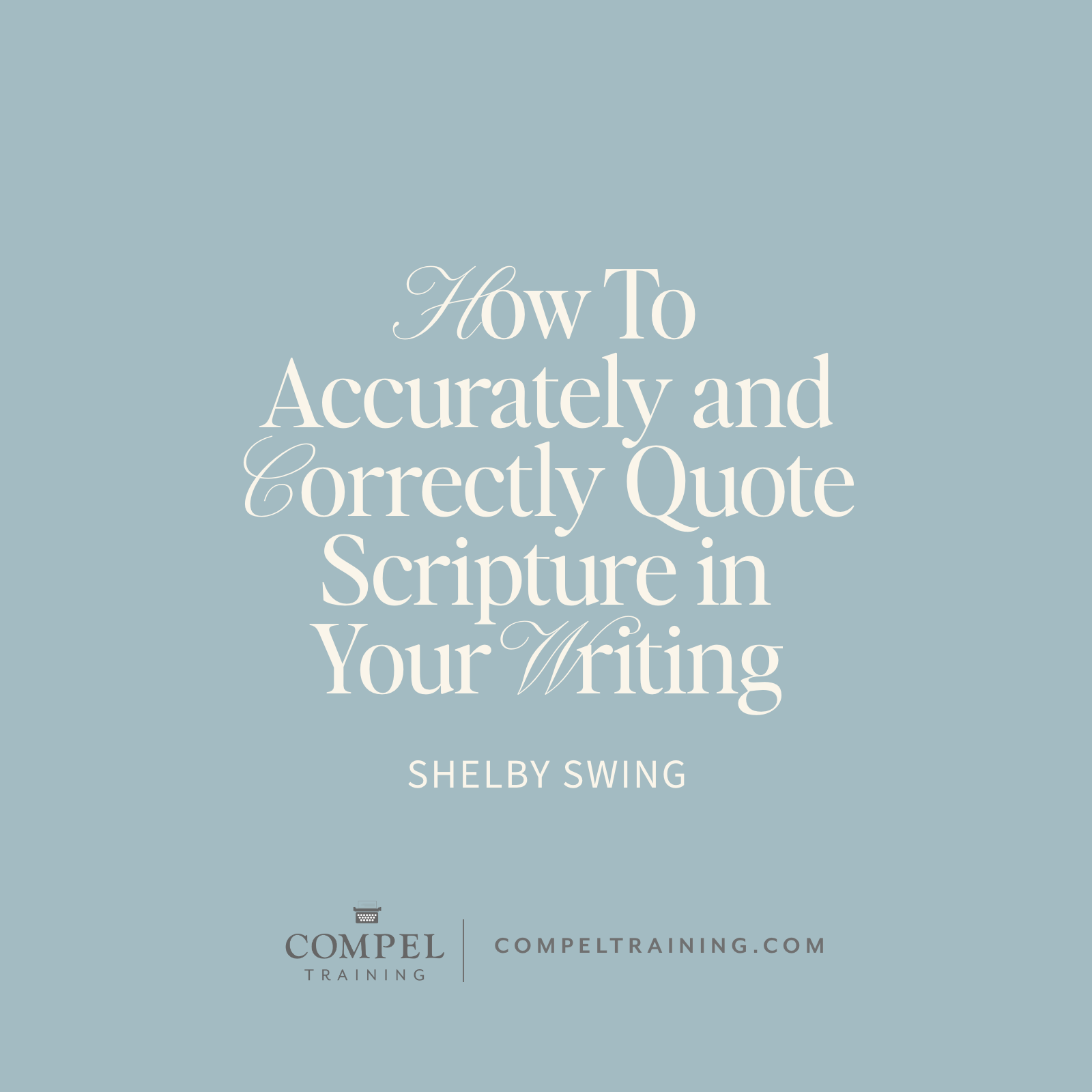How To Accurately and Correctly Quote Scripture in Your Writing

by Shelby Swing
Do you wonder what the rules are for using Scripture in your writing? Maybe you’re like me and sometimes second-guess if you’re quoting that Bible verse or passage correctly … or you wake up in the middle of the night in a cold sweat because you think the reference said NIV instead of ESV and you for sure left off a set of quotation marks. Here are three simple secrets I’ve discovered in my time as Proverbs 31 Ministries’ proofreader for making sure God’s Word is quoted accurately and correctly, just as it is and as it should be.
- Refer to an online Bible website instead of (or in addition to) your physical, print Bible. I know plenty of people who prefer to use their print Bible when adding Scripture to any kind of content they’re writing. However, I believe there’s a benefit to being able to have your writing side by side on your screen with an online Bible website. Our eyes too easily get lost going up and down from the screen to the print Bible in front of us. If you’re using a print Bible to check your Scripture-quoting accuracy, use a trustworthy online Bible website as well. I use Bible Gateway multiple times a day, but Bible Hub and Bible Study Tools are two similar Bible websites you can use.
- Deconstruct a verse with multiple sets of quotation marks to make sure you’re using the correct amount. Often, I’ll get stumped by a verse with multiple sets of quotation marks, such as a quote within a quote within the verse itself. That means there would be a set of double quotation marks (“ ”), a set of single quotation marks (‘ ’), and then another set of double quotation marks, all mixed up in that one verse! An example of this is Ezekiel 20:18-20, in which Ezekiel is quoting God who then quotes Himself. And because you’d be quoting that passage of Scripture, you’d have three sets of quotation marks in total. Is your head spinning yet? Mine too. To make sure I’m using the correct number of quotation marks and the correct kind (double or single), I’ll mentally, or on paper, take apart the verse to see where each quote begins or ends and how many quotes are included within each other.
- Use “a” or “b” in the Scripture reference to indicate you’re only quoting part of a verse (for a verse with multiple sentences). Your readers will then know that you’re referencing only the first sentence of a verse (“a”), or the second sentence (“b”). If the verse you’re referencing is a single sentence and you’re referencing only part of it, don’t use “a” or “b” — just cite the verse as a whole. The “a” and “b” rule only applies to verses that contain multiple sentences. For example, Genesis 1:2 in ESV is two sentences. If you were to only quote “The earth was without form and void, and darkness was over the face of the deep,” your Scripture reference would look like this: Genesis 1:2a. If you were to quote the second sentence of Genesis 1:2, “And the Spirit of God was hovering over the face of the waters,” your reference would look like this: Genesis 1:2b. Simple, straightforward and lets your readers know exactly which section you’re quoting.
Sometimes, quoting Scripture in our writing can be tricky, but the time taken to be sure we are accurate is well worth it. We want the Word written correctly, just as it is and as it should be.
Shelby Swing
Has quoting Scripture in your writing seemed like a bit of a mystery to you in the past? What tools have you found to help?
Recommended Posts

Captivating Your Audience as a Speaker
April 23, 2024

Ever wanted to write for Proverbs 31 Ministries? Here’s how…
April 18, 2024

When Writing Feels Like a Nightmare
April 16, 2024

When a verse ends with a comma, colon, or no punctuation, it is okay to use a period when quoting it? (Does it make a difference if it is a stand-alone memory verse, as compared to being in a writing?) As an example:
“Jesus said to her, ‘I am the resurrection and the life. Whoever believes in me, though he die, yet shall he live,'” (John 11:25 ESV)
As a verse to memorize, is it preferred to use the comma, or to use a period?
Also, is there a good reference book for finding answers to similar scripture-quoting questions?
Good words to help us share the Word correctly. Thanks Shelby!